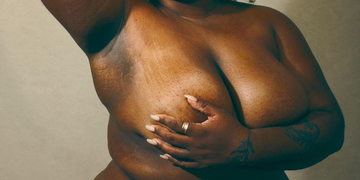Is there a connection between breastfeeding and fertility?

You’ve recently given birth to a beautiful baby, and in between bouts of exhaustion and bliss, you may find yourself wondering: how soon will my body return to its pre-partum state? When will my period come back? When can I have sex again? Going hand in hand with this might be, can I get pregnant this soon after birth?
If you’re curious how breastfeeding can affect your fertility, here’s what you need to know.
Breastfeeding as birth control?
Did you know the culprit for a delayed period after pregnancy could be due to breastfeeding? Exclusive breastfeeding post birth can act as a type of birth control for your body. This phenomenon is known as lactational amenorrhea, with lactation in reference to milk production and amenorrhea referring to the absence of your period or menstruation cycle. While it is possible to get pregnant when you’re breastfeeding, your chances of conceiving are quite low if the following 3 things are happening at the same time:
- You are breastfeeding exclusively (no solid foods)
- Your baby is under 6 months of age
- Your period has not yet returned
Perhaps you are now wondering if this linkage between fertility is enough for you to use breastfeeding as birth control. About 2 out of 100 people who use breastfeeding as birth control will get pregnant in the 6 month window after a baby is born — likely because they were missing one of the factors listed above.
Test for ovulation and early pregnancy
Breastfeeding won’t prevent pregnancy if you feed your baby anything other than breast milk. If you use formula or a breast pump, this will increase your chance of conception. As a baby starts eating solid foods, and potentially sleeps through the night (meaning less nighttime feedings), or a mother returns to work outside the home for multiple hours at a time, the level of estrogen levels (kept low while directly breastfeeding, as opposed to when you are pumping) are likely to increase. In cases such as this, another type of birth control besides lactational amenorrhea (or birth control through breastfeeding) will need to be used to prevent another pregnancy.
Your cycle after birth
If you are hoping for a return to fertility, keep in mind that your period returning after childbirth is the indication that your body has resumed its normal fertility cycle. If you are not breastfeeding, your menstrual cycle can return a few weeks after birth. If you are breastfeeding, it can take up to 6 weeks, or longer, for your menstrual cycle to return (including ovulation). If you start out breastfeeding, but decide to stop, your cycle can return within four to eight weeks. Since every body is different, it can take up to 9 months for some to start ovulating again. Speak to your doctor or a medical professional if you have concerns about your menstrual cycle and when it may return postpartum.
If you don’t want to give up breastfeeding, but you’re anxious to start trying for another baby — you can partially wean or breastfeed less often like only in the morning or at night time. If you are planning to utilize fertility procedures to get pregnant again, the following are options you can explore with a medical professional as long as your child is older than 6 months or breastfeeding only a few times a day:
- Clomid Cycle
- Frozen Embryo Transfer
- Intrauterine insemination (IUI)
If you need to take medications for an IUI or are planning on in-vitro fertilization, endocrinologists will likely recommend weaning your child completely before treatment
The hormones your body makes while you are breastfeeding can prevent the ovulation necessary for certain fertility medications.
The World Health Organization recommends that women wait 24 months after giving birth before becoming pregnant again. Closely spaced pregnancies can have health risks, including preterm labor and low birth weights as well as financial burdens.
It is entirely up to each individual family to determine your desired spacing between each birth, but for those who are eager to try again, or for those who hope to wait a bit, the key is to know how your cycle is affected by your new child and when you may start ovulating again.
Keep Reading

Myths of fertility with age
Feb 16 • 3 minutes

What to expect at your next OBGYN appointment
Jan 14

Should women under 40 worry about breast cancer?
Aug 9








